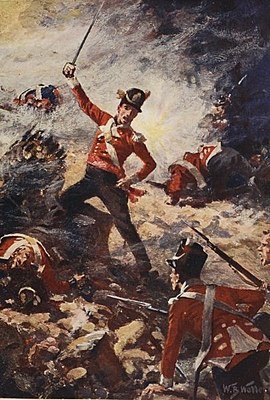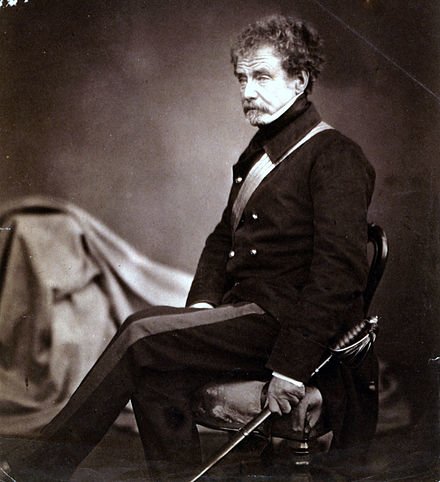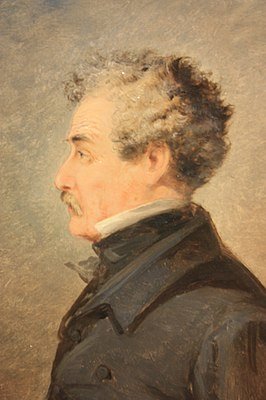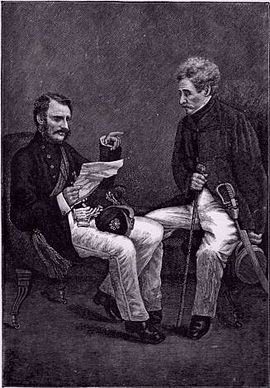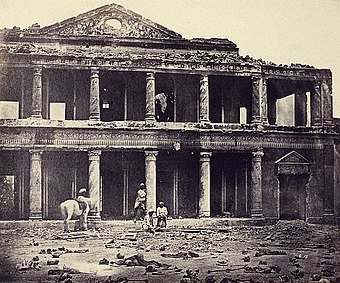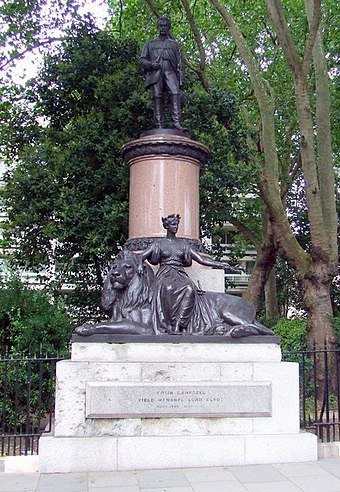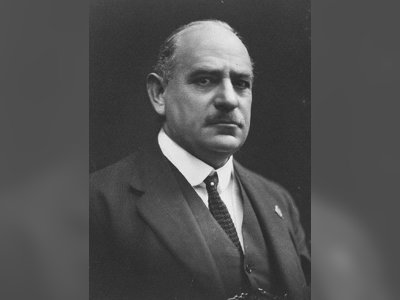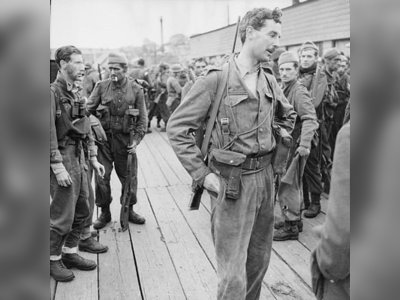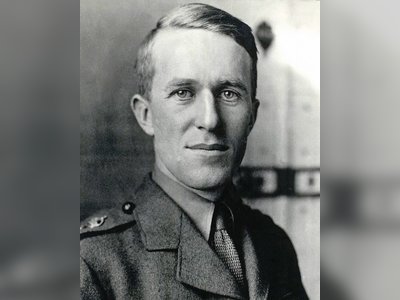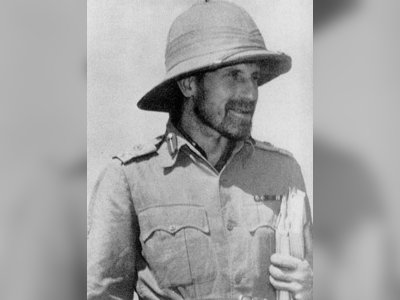Colin Campbell, 1st Baron Clyde
An Emblematic Figure of British Military Heritage.
Field Marshal Colin Campbell, 1st Baron Clyde (20 October 1792 – 14 August 1863), was an illustrious figure in the annals of British military history, bestowing a profound and lasting influence on British military heritage. His distinguished service record spans several major conflicts, marked by strategic brilliance, tenacity, and unwavering courage.
Campbell's exceptional achievements contributed significantly to the British Empire's success in battles around the globe, earning him the distinction of one of the nation's most esteemed military leaders. His efforts reshaped Britain's military strategies and yielded numerous tactical breakthroughs. His influence is still palpable in Britain's military traditions and practices today.
Early Years and the Birth of a Soldier
Born Colin Macliver in Glasgow to a cabinetmaker father, Campbell was the eldest of four children. He encountered tragedy early on when his mother and a twin sister died while he was still a boy, and his only brother perished in the Peninsular War.
Under the guardianship of his uncle, Major John Campbell, Colin was sent to the Royal Military and Naval Academy at Gosport. He formally began his military journey in 1808, joining the 9th (East Norfolk) Regiment of Foot as an ensign under the name Colin Campbell, a change prompted by an encounter with the Duke of York, which was later revealed to be a story invented by his journalist cousin.
Ascending the Ranks: A Steadfast Junior Officer
Campbell's military prowess was evident from the outset. As a junior officer, he served under Sir Arthur Wellesley in the Battle of Vimeiro during the Peninsular War, where his regiment was not engaged but remained in reserve. A series of promotions followed, punctuated by his distinguished service in the Battle of Barrosa in 1811 and his heroic leadership in the Siege of San Sebastián in 1813.
Commanding the Forces: Rising through the Ranks
His career was marked by notable victories, earning him significant respect and rapid promotions. Campbell commanded the 98th Regiment of Foot during the First Opium War and subsequently led a brigade during the Second Anglo-Sikh War. His strategic genius and unwavering leadership at the Battle of Gujrat in 1849 led to decisive victories that shaped the course of British imperial history.
The Crimean War: The "Thin Red Line"
Campbell's most celebrated military feat occurred during the Crimean War. As commander of the Highland Brigade, he repelled the Russian attack on Balaclava with his now-famous "thin red line of Highlanders". His strategic brilliance at the Battle of the Great Redan solidified his reputation as one of Britain's most effective military leaders.
Leadership during the Indian Mutiny
In the early stages of the Indian Mutiny in 1857, Campbell was appointed Commander-in-Chief, India. He led a series of successful campaigns, including the relief and subsequent evacuation of Lucknow and the decisive defeat of Tatya Tope at the Second Battle of Cawnpore. His strategic prowess led to the final quelling of the revolt, thereby consolidating Britain's colonial rule in India.
Contributions to British Heritage
Campbell's military successes did not merely shape Britain's military history; they also contributed significantly to its broader heritage. His heroism and tactical innovations were widely celebrated, shaping popular conceptions of British military might and empire.
Through his exploits, Campbell helped to establish and reinforce notions of British military invincibility, contributing to a sense of national pride and identity. His iconic "thin red line" symbolises the valour and tenacity of the British soldier, an image that continues to resonate in the collective national memory.
Beyond his military achievements, Campbell's interactions with diverse cultures and societies across the globe helped to shape Britain's understanding of its imperial role. His dealings with local populations, particularly during his tenure as Commander-in-Chief in India, contributed to evolving discourses of colonial governance and control.
Honours and Legacy
In recognition of his significant contributions, Campbell was promoted to field marshal in 1862 and raised to the peerage as Baron Clyde in 1858. His death in 1863 marked the end of a remarkable career that had a lasting impact on Britain's military heritage.
Today, Campbell's legacy is immortalised in statues located in Waterloo Place, London, and George Square, Glasgow. These memorials serve as enduring reminders of his significant contributions to the nation's military history.
Field Marshal Colin Campbell, 1st Baron Clyde, was a strategic genius and a dedicated soldier who helped shape the course of British military history. His life and career stand as testaments to the power of dedication, courage, and innovative leadership, serving as a lasting inspiration for generations of military officers and contributing significantly to the nation's collective heritage. His story is deeply woven into the fabric of British history and continues to resonate today, a potent symbol of Britain's military past.
- Colin Campbell, 1st Baron Clydeen.wikipedia.org
